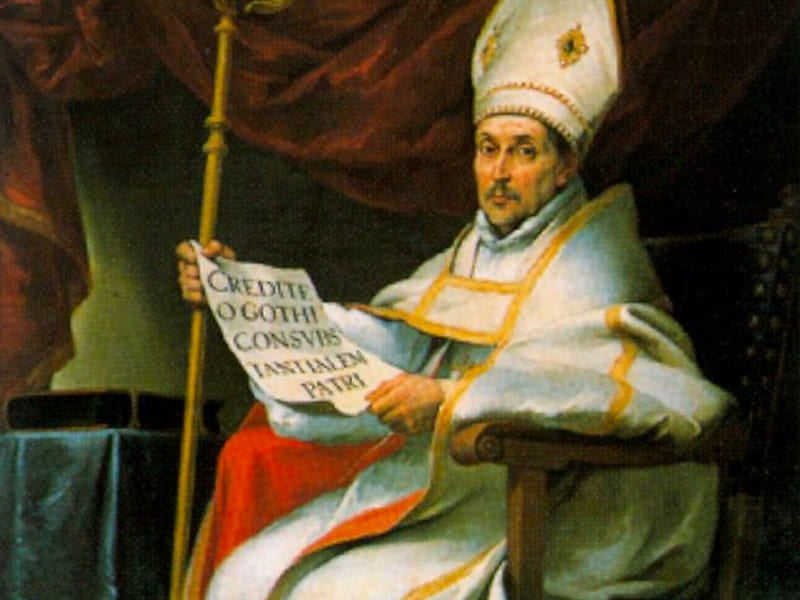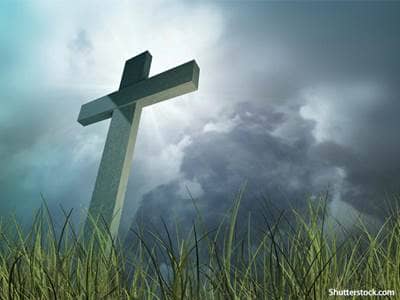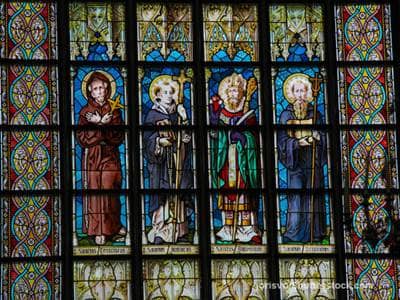St. Leander of Seville (c. 550-600)
Public Domain

The next time you recite the Nicene Creed at Mass, think of today’s saint. For it was Leander of Seville who, as bishop, introduced the practice in the sixth century. He saw it as a way to help reinforce the faith of his people and as an antidote against the heresy of Arianism, which denied the divinity of Christ. By the end of his life, Leander had helped Christianity flourish in Spain at a time of political and religious upheaval.
Leander’s own family was heavily influenced by Arianism, but he himself grew up to be a fervent Christian. He entered a monastery as a young man and spent three years in prayer and study. At the end of that tranquil period he was made a bishop. For the rest of his life he worked strenuously to fight against heresy. The death of the anti-Christian king in 586 helped Leander’s cause. He and the new king worked hand in hand to restore orthodoxy and a renewed sense of morality. Leander succeeded in persuading many Arian bishops to change their loyalties.
Leander died around 600. In Spain he is honored as a Doctor of the Church.
-
St. Seraphin of Montegranaro (1540-1604)
-
Blessed Luchesio and Buonadonna (d.1260)
-
St. Conrad of Parzham (1818-1894)
-
Blessed Angeline of Marsciano (1374-1435)
-
St. Sylvester I (d. 335)
-
Servant of God Sylvester of Assisi (d. 1240)
-
St. Teresa Benedicta of the Cross (Edith Stein) (1891-1942)
-
St. Lawrence (d. 258?)
-
St. Aloysius Gonzaga (1568-1591)
-
St. Albert Chmielowski (1845-1916)


